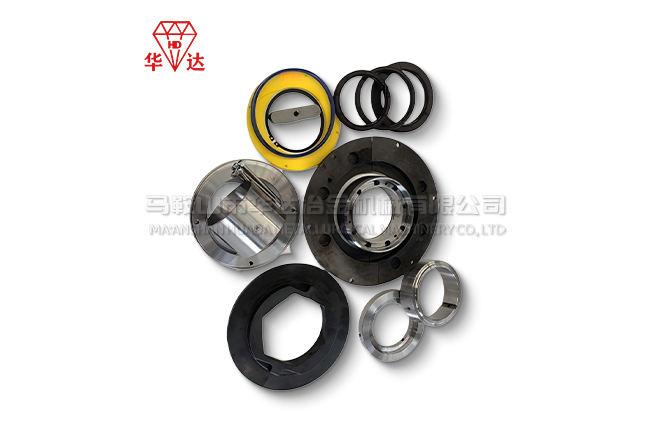Sealing Components: Key to Reliable Industrial Equipment Performance
In heavy-duty industries such as mining, construction, chemical processing, and manufacturing, equipment reliability is the foundation of productivity. One of the most critical elements ensuring operational stability is the sealing component (also called seal assembly). These components, though small in size, play a vital role in preventing leaks, contamination, and wear in industrial machinery.

From mixers, crushers, pumps, to compressors, sealing components provide the first line of defense against dust, water, oil, and other foreign particles that could damage the equipment. High-quality sealing assemblies ensure that machines can operate continuously under high temperature, high pressure, and heavy load conditions.
Materials and Technology Behind Sealing Components
Modern sealing components are manufactured using advanced materials such as:
High-performance rubber (NBR, EPDM, Viton) for chemical and oil resistance.
PTFE and composite polymers for low-friction sealing.
Metal-reinforced seals (stainless steel, alloy steel) for extreme environments.
Graphite and ceramic seals for high-temperature applications.
In addition, manufacturers are introducing multi-layer sealing systems that combine elasticity, strength, and abrasion resistance. These designs ensure maximum sealing efficiency while extending the component’s service life.
Advantages of Reliable Seal Assemblies
Leak Prevention – prevents oil, slurry, and lubricant leaks that could damage equipment.
Dust and Particle Protection – blocks dust and debris from entering moving parts.
Extended Equipment Lifespan – reduces friction and wear in shafts, bearings, and housings.
Improved Energy Efficiency – ensures smoother operation with minimal power loss.
Reduced Maintenance Costs – fewer breakdowns mean lower repair expenses and downtime.
Applications Across Industries
Sealing components are indispensable in many industries, including:
Mining and Aggregates – seals for crushers, conveyors, and grinding equipment.
Concrete and Mixing Equipment – shaft seal assemblies for mixers and batching plants.
Oil & Gas – high-pressure seals for pumps and drilling machinery.
Chemical Industry – corrosion-resistant seals for reactors and pipelines.
Automotive and Mechanical Engineering – seals in engines, gearboxes, and hydraulic systems.
Each industry requires customized sealing solutions to meet unique operational challenges, making sealing technology a dynamic and fast-developing field.
Future Development of Sealing Technology
The sealing industry is embracing innovation and digitalization. Advanced seal assemblies may soon integrate wear sensors that provide real-time monitoring of temperature, pressure, and surface conditions. This predictive maintenance approach will allow operators to identify issues early and prevent costly downtime.
Moreover, the rise of eco-friendly sealing materials is becoming a trend. Manufacturers are exploring sustainable polymers and recyclable composites to reduce environmental impact without compromising performance.
Conclusion
Although often overlooked, sealing components are essential for the safe and efficient operation of industrial equipment. By investing in high-quality, wear-resistant seal assemblies, companies in mining, construction, oil & gas, and manufacturing can significantly enhance performance, extend equipment lifespan, and reduce operating costs.
As global industries continue to demand higher productivity and reliability, the importance of sealing technology will only continue to grow.
